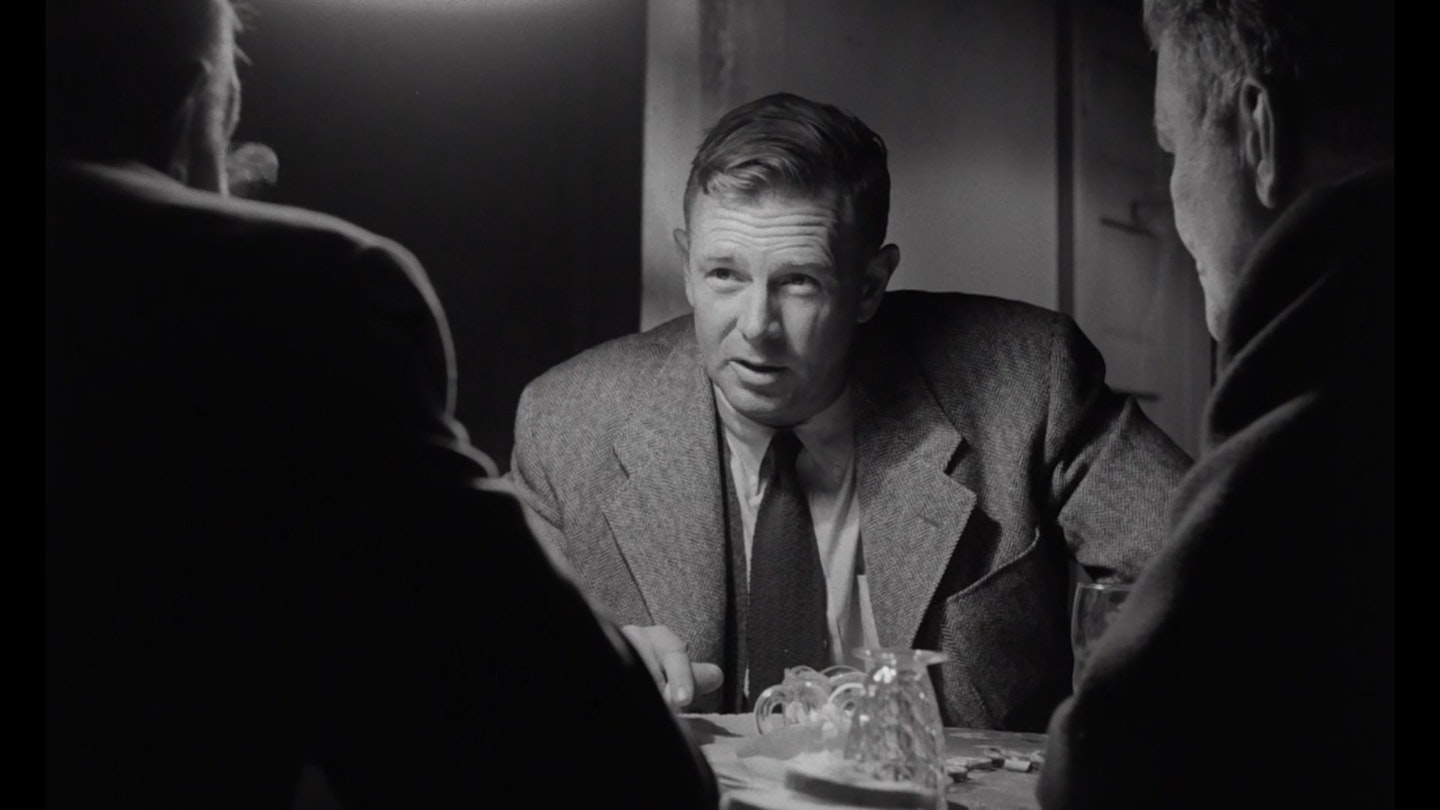One of the great themes of the crime movie is the perfect heist that goes wrong. In classic Hollywood, the inevitable downbeat conclusion was mandated by censorship requirements that crime not be seen to pay. However, when Stanley Kubrick set out in 1955 to film Lionel White's neat little novel Clean Break, the perfect heist was doomed to fall apart as much because of the director's bleak world-view as any kowtowing to public morality.
In Kubrick's world, there is no such thing as a perfect plan or a perfect machine — fallible human beings will always drop the ball at the vital moment, and the better-timed and planned a venture is the more likely a small diversion from the outline is to lead to catastrophe. Just as fail-safe systems designed to prevent an accidental nuclear war in Dr. Strangelove or the meticulous programming that puts a computer in charge of the Jupiter mission in 2001: A Space Odyssey wind up turning on themselves leading to ironic tragedy, the race-track robbery of The Killing is pulled off almost flawlessly, but collapses because of human elements and impossible-to-foresee twists of fate (the moral being, never buy a cheap suitcase). In The Killing, someone dies because he throws away a lucky horseshoe then bursts a tyre by backing his getaway car over it.
With a stentorian, god-like narrator to identify precise times and places, The Killing unfolds in a daring structural jigsaw puzzle. A style that must have made a great impression on Quentin Tarantino, who has never quite been able to repeat the trick Kubrick manages of doubling back and skipping forth in time while darting around a central location to give a full picture of a complex situation. We begin at a Los Angeles race track as, "The hundred thousand dollar Lansdowne Stakes" is about to be run, with the hotly-fancied favourite Red Lightning almost a dead cert. Around the track several people are strangely disinterested in the big race: strong-arm man Johnny Clay (Hayden), tipsy customer Marvin linger (Jay C. Flippen), meek cashier George Peatty (Elisha Cook Jr.), Officer Dibble soundalike cop Randy Kennan (Ted de Corsia) and bartender Mike O'Reilly (Joe Sawyer). With two outside men — sniper Nikki Arane (Timothy Carey) and intellectual wrestler Maurice (Kola Kwariani) —to stage diversions by shooting Red Lightning in the home stretch and occupying all the security guards in a barroom brawl, the mob have plotted how to slip past the guards, grab two million in untraceable cash and (vitally) get the loot off the site.
The heist is a perfectly-judged suspense sequence, but the flashbacks and -forwards let us in on the sad realities of the crooks' lives and hint at their dooms. Meek runt George has a trampy, vampy wife Sherry (Marie Windsor), who cajoles her way into the scam but sets Clay's crew up to be robbed of their takings by her thug boyfriend Val (Edwards) and his partner (Joe Turkel, later the bartender of The Shining and Blade Runner's genius Tyrell). Johnny is a pro with a devoted girl (Gray) and firm relationships with fellow pros Nikki (the grinning Carey is an unforgettable presence) and Maurice, but he finances this scheme by taking advantage of the discreetly homosexual Unger. By delicately rebuffing Unger's pre-robbery suggestion that the two of them go away together, "and let the world take a couple of turns," Johnny breaks his heart and turns him into a fatally loose cannon.
Kubrick was always great with actors: notice how much more Hayden does here with apparently less to go on than in the similar The Asphalt Jungle (1950), and the way familiar film gangland types like Cook, Windsor, Sawyer and Flippen manage to cram lifetimes of aching disappointment into a few intense yet understated scenes (the dialogue is by hard-boiled novelist Jim Thompson).
The fraying of the gang's solidarity and Sherry's power play leaves most of them dead on dirty floors. Great moments: Cook gunning down his wife's lover with a cry of ,"The jerk's right here"; Windsor's dying words, "Just a bad joke with no punchline".
Johnny comes to grief at the airport, where an official won't let him tote an oversized suitcase full of cash as hand baggage ("Sir, those are our flight regulations, which are designed for your comfort and safety"). A yapping dog causes a spill which pays off in an image as archetypally comic-tragic-awesome as the mushroom cloud of Dr. Strangelove, the hideously frozen Jack of The Shining, the luminous Star Child of 2001 and the Mickey Mouse Club of Full Metal Jacket — two million dollars in loose bills whipped into a whirlwind by aeroplane engines.
